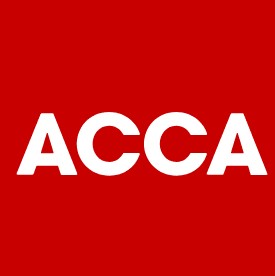What is Economic Substance Regulations in UAE?
In 2019, Economic Substance Regulations (ESR) were introduced in the United Arab Emirates. The purpose of the ESR is to prevent businesses, typically multinational corporations, from artificially shifting profits to jurisdictions that impose little or no income tax without having substantial activities in that jurisdiction to take advantage of their tax laws. The UAE is considered one of these jurisdictions.
Why were ESR introduced in UAE?
Regardless of how you’re setting up your business, it’s important that you’re aware of the UAE’s economic substance regulations. Essentially, your company needs to be managed or directed within the UAE, have an adequate number of UAE-based staff (who are full-time), generate the majority of your income in the UAE, as well as keep adequate assets in the UAE and be able to demonstrate operating expenditure in the country.
Who does Economic Substance Regulations apply to?
The UAE applies Economic Substance Regulations (ESR) to local companies located in the country, including businesses in the free zones and those engaged in any of the defined ‘relevant activities. These companies must provide the regulatory authorities with economic substance notifications, including preliminary information about the activities.
What are the key requirements of ESR Regulations?
1. Conduct Core Income Generating
- Raising funds, managing risk including credit, currency and interest risk
- Taking hedging positions
- Providing loans, credit or other financial services
2. Directing Business within UAE
- Quorum of directors must be physically present in the UAE
- Meeting minutes must be maintained and signed in the UAE
- The directors attending the board meeting must have the required skills and expertise.
3. Employ Full-time Staff
To demonstrate the Economic Substance Test in Dubai, the companies need to employ an adequate number of qualified full-time staff who need to be physically present in the UAE and must be performing the CIGA. The ESR has the option to count the directors as employees for the purpose of the Economic Substance Test if they carry out the CIGAs in addition to their fiduciary duties.
4. Operating Expenditure
To satisfy the UAE Economic Substance Test, the companies are required to ensure that adequate operating expenditure is incurred within the UAE on the Relevant Activity.
5. Retain Adequate Physical Assets
According to the ESR guidelines, the companies should either have adequate levels of physical assets in the UAE used for conducting the CIGA, or it needs to have an adequate level of expenditure on outsourcing for the Relevant Activity.
What are the Penalties for non-compliance with ESR regulations?
According to Article 13 of Cabinet Resolution No. 57 of 2020 regarding economic substance requirements, a Licensee or Exempted Licensee who fails to submit an Economic substance regulations notification in the UAE is subject to pay an administrative penalty of AED 20,000. The National Assessing Authority will notify the entity of the penalty if it has determined that the entity has committed the offense.
What is the Impact of ESR on UAE Businesses?
The new Economic Substance Regulations (ESR) aim to stop non-domiciled directors who have registered (and who operate) companies in the UAE from evading tax in their home country. It’s an important step by the UAE to ensure the country is not blacklisted as ‘non-cooperative’ by the EU.
How can Businesses benefit from ESR Compliances
Providing accurate reports to the concerned authority plays a really important part consistent with the Economic Substance Regulations. Each company is obligated to supply annual or bi-annual reports depending upon the business activities being performed within the company. Each company must prepare a notification stating if the ‘Relevant Activities’ are being performed within the company or not.
The implementation of ESR will help the businesses to reduce illegal business practices and pave way for the businesses which are better and do the business the proper way. This may help generate healthy competition between the businesses, which in turn, help increase profitability.
What is the future of ESR in UAE?
Economic Substance Regulations will affect the businesses in the UAE in a positive manner and will have a high impact on the economy of the country. However, business management needs to be more mindful and give accurate and relevant information about the company at the right time.
MARKEF's ESR Compliance Services
Economic Substance Regulations in UAE is introduced to stop unfair tax practices and meet international standards of the economy. To pass the economic substance test companies have to make sure that, they are pursuing relevant activities. Failure in that attempt results in penalties that may cause a great loss for your business. To avoid these penalties, firms need the service of professional ESR consultants.
MARKEF Corporate Services has a diverse team of professionals across Tax, Finance, Law and Economics domains who review whether Economic Substance rules are applicable for your business and also clarify the extent to which they are applicable. Our team of experts can guide you through the measures that need to be taken to mitigate risks of non-compliance to ESR.
FAQ :
The ESR applies to all UAE-based companies that engage in Relevant Activities.
Non-compliance can result in significant penalties, including fines, suspension, and the revocation of business licenses.
Companies must demonstrate that they have sufficient economic substance in the UAE by meeting certain requirements, including having a sufficient number of qualified employees and appropriate premises.
The ESR is being implemented by the regulatory authorities in the UAE, including the Ministry of Finance and the various free zone authorities.
Blogs you might find useful :

We're here to help you! Reach out for solutions.
We're here to help you! Reach out for solutions.
Don't let doubts hold your business back.

Have any questions? Reach us by phone.

We're here for you! Reach us by mail.
Contact Us
We Always here to help you!
Business Setup
Tax Services
Consulting Services
Accounting Services
Compliance
Audit & Assurance
Quick Links

MARKEF is a leading Accounting Firm offering wide range of services including Accounting and Bookkeeping, Audit and Assurance, VAT and Corporate Tax, Business Consulting, Management Consulting, and Business Setup Services in Dubai and across United Arab Emirates.
- Office No.1929, Tamani Art's Offices Tower, Business Bay, Dubai, United Arab Emirates
- +971 4 589 2828
- +971 50 105 4241
- E-mail : info@markef.com
-
Mon - Sat : 8:00 - 18:00
Sunday Closed


